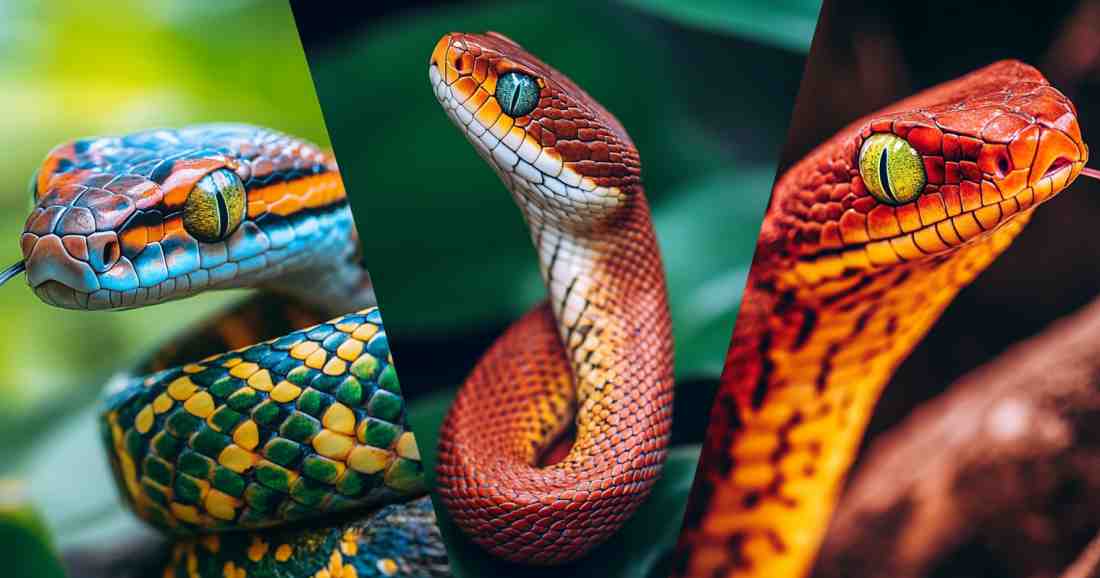
Uncover the perfect snake companion with the tailored Best Pet Snake for Me Quiz, Find Your Perfect Serpent Companion. Best Pet Snake for Me Quiz helps you discover which snake species best matches your lifestyle, experience level, and expectations. Snakes vary in size, temperament, and care requirements, making it crucial to choose a species that fits your comfort and commitment level. Whether you’re seeking a beginner-friendly snake or an bizzare species with unique traits, this quiz guides you to the perfect scaly companion.
Snake personalities vary based on species, temperament, and handling preferences. Ball pythons, for example, are calm, docile, and ideal for beginners, while corn snakes are curious, active, and easy to care for. In contrast, more advanced species like green tree pythons require specialized care and handling. The Best Pet Snake for Me Quiz evaluates your lifestyle, experience, and expectations to match you with a snake that suits your needs.
Understanding Snake Temperaments
Snake temperament plays a crucial role in choosing the right pet. Docile snakes, like ball pythons and rosy boas, tolerate handling well and rarely show aggression. Corn snakes, known for their curious nature, enjoy exploring but remain easygoing. However, some species, like king snakes and milk snakes, can be more assertive, requiring confident handling. This quiz helps identify which snake temperament aligns with your comfort level.
Care Requirements for Each Snake Breed
Different snake species have varying care needs, including enclosure size, temperature, humidity, and diet. Beginner-friendly snakes, like corn snakes and ball pythons, thrive in simple setups with moderate humidity. In contrast, species like boa constrictors and green tree pythons require larger enclosures, higher humidity, and more advanced care. This quiz evaluates your ability to meet these requirements, ensuring you choose a breed that fits your lifestyle.
Handling Preferences and Social Habits
Handling preferences vary among snake species. Ball pythons enjoy gentle handling and often curl around their owner’s hand, while corn snakes remain active and exploratory during handling. In contrast, more sensitive species, like hognose snakes, may prefer minimal handling. This quiz determines which snake aligns with your handling preferences and interaction expectations.
Practical Insights for Snake Ownership
Owning a pet snake involves more than providing food and shelter. Proper enclosure setup, consistent temperature control, and a balanced diet ensure your snake’s health and happiness. Moreover, understanding your snake’s behavior helps build trust and prevent stress. This quiz offers practical insights into snake care while guiding you toward a species that fits your lifestyle and experience level.
Fun Facts About Popular Pet Snake Species
Did you know ball pythons get their name from their habit of curling into a ball when they feel threatened? Corn snakes, often mistaken for venomous copperheads due to their coloration, are entirely harmless and excellent escape artists. Additionally, hognose snakes are known for their dramatic “death feigning” behavior when startled. This quiz uncovers more fascinating facts while helping you find the ideal snake companion.
Take the Best Pet Snake for Me Quiz Now
Ready to find your perfect scaly friend? The Best Pet Snake for Me Quiz offers an engaging way to explore which snake species matches your personality, lifestyle, and care preferences. Moreover, it provides practical tips for snake ownership while ensuring you choose a species that fits seamlessly into your home. Ultimately, this quiz empowers you to make an informed decision and enjoy a rewarding pet-owner experience. Take the quiz now and discover the best pet snake for you!
